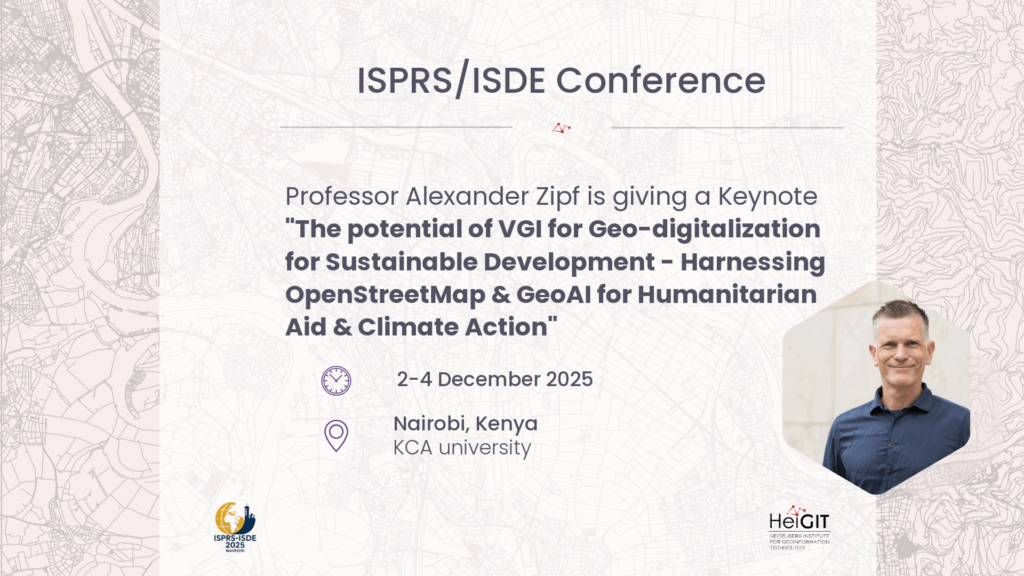The join ISPRS/ISDE Conference 2025 (Geo-Digitalization of Sustainable Development Goals and 3rd Youth Innovation Forum of Digital Health) takes place in Nairobi, Kenya, from December 2-4, 2025. HeiGIT will be present with a keynote talk:
„The potential of VGI for Geo-digitalization for Sustainable Development – Harnessing OpenStreetMap & GeoAI for Humanitarian Aid & Climate Action“ – Prof. Dr. Alexander Zipf
December 2, 9:00 AM
Volunteered Geographic Information (VGI), especially OpenStreetMap (OSM), but also crowdsourced street-view imagery, are transforming the landscape of geo-digitalization, offering innovative opportunites for supporting sustainable development. This talk explores the potential of VGI for geo-digitalization, emphasizing its role in sustainable development, esp. with a focus on humanitarian aid and climate action.
OpenStreetMap, as a leading VGI platform, enables participatory mapping, empowering communities to contribute critical geospatial data for disaster response, environmental monitoring, public health and urban planning. The integration of GeoAI – artificial intelligence applied to geospatial data – has the potential to further enhance the efficiency of community-driven mapping efforts. While VGI provides rich, heterogeneous, and local geospatial data, GeoAI offers the potential to generate it more efficiently. The combination of GeoAI and VGI raises questions about data reliability, ethics, and the future of human-AI collaboration in GIScience. Where is the sweet spot between workflows combining crowd intelligence with artificial intelligence?
This talk highlights opportunities and challenges and presents selected examples based on the work of HeiGIT and GIScience Heidelberg with a focus on humanitarian aid and monitoring urban sustainability, contributing to the United Nations’ Sustainable Development Goals (SDGs) by enhancing resilience, environmental stewardship, and humanitarian aid.

